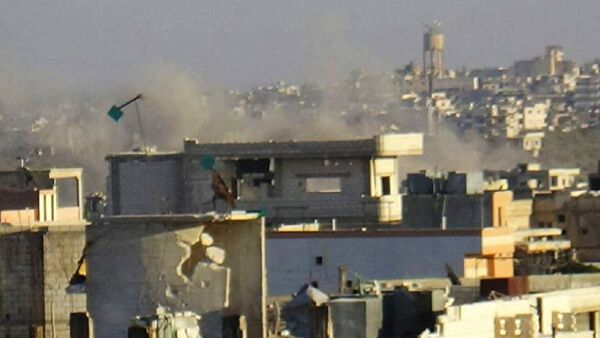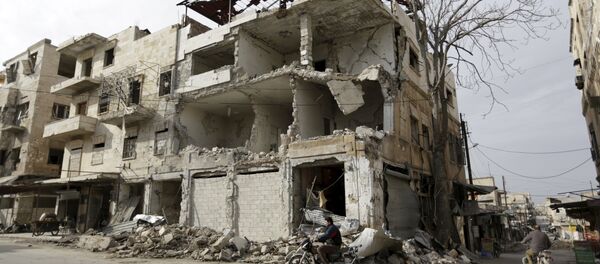Amir is the representative of the residents of the Shiite cities in question and was able to leave his home when it was still possible to escape before the blockade.
At present he and his colleagues devote all their time to saving the inhabitants of Kafriya and Fu’ah from excruciating death.
“We communicate with our people very rarely. There is no contact. We learn about the situation through our own channels, often through bribery and the use of secret paths,” Amir said.
The terrorists stormed the cities of Kafriya and Fu’ah back in 2012. There were attempts to break the defense line using mines. Following the assault, several thousand militants went in to attack. The assault was repelled with the help of the Syrian Air Force.
The defenders of the city managed to protect their homes and save the lives of their fellow citizens. Since then, they have been living under a blockade.
Death for ‘incorrect Islam’
“They consider us [Shiite Muslims] traitors of Islam who must die. If they take Fu’ah and Kafriya, they will execute all of the residents because we are not Sunnis,” Amir explained to the RIA correspondent.
The representative of the National Council said that right now the resistance from Shiite militias is almost nonexistent, so the militants can kill the urban population at any time.
But the militants are creating intolerable conditions of existence on purpose in order to use the siege as a bargaining chip in negotiations with the Syrian government.
The terrorists are using the residents in exchange for other terrorists who are surrounded in a number of cities near Damascus.
In 2015, 50 people, mostly children and injured, were released from the besieged cities in exchange for militants in the town of Madai. On September 8 there was another exchange of 11 people on each side.

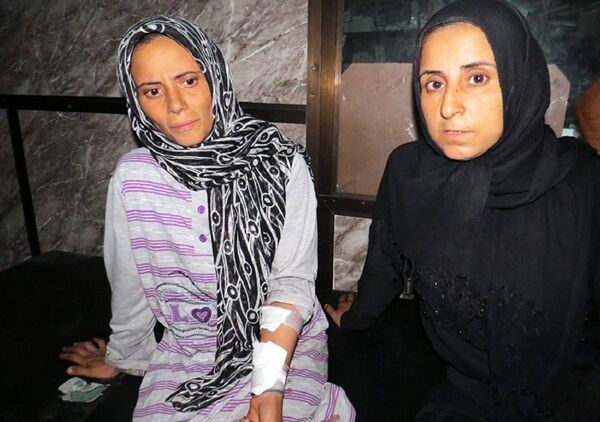
The world turns a blind eye to besieged cities
Internationally, all attention is drawn to the issue of the humanitarian situation in the city of Aleppo, where the militants have formed a tight circle around the eastern neighborhoods. Around 200-300 thousand civilians reside in the territory controlled by the terrorists.
The last time the Syrian Red Crescent was able to deliver humanitarian aid to civilians of the cities was in late July.
Russia with support from the Syrian government has opened humanitarian corridors through which everyone can leave the occupied territory.
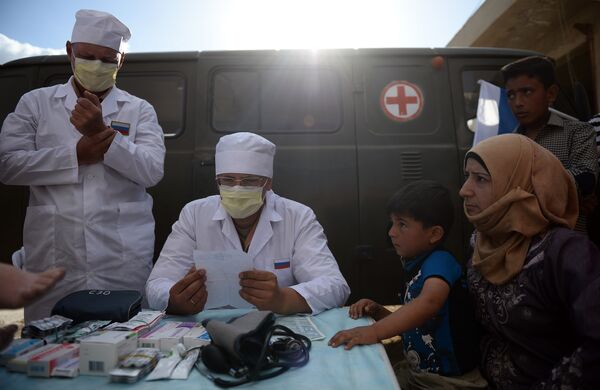
However, very few can actually escape. Those trying to flee to western Aleppo can get shot by the militants.
“In Fu’ah and Kafriya even the slightest hope is slipping away for the people. In Aleppo, in the eastern part even the Internet works, if you want, I'll call a friend. They have difficulties with food and water, but they have been under siege for a month and everyone is worried. Our people have been stuck for more than three years and nobody cares,” the representative said.
“I cannot understand why the UN and the West does not raise the question of assistance to our city. Are we not people?” Amir exclaimed.
Thousands of besieged children, high prices and lack of medicine
According to the representative, medication in the city has run out. Even the most basic medication is not available for people to clean their cuts and wounds, which leads to infections and healthy people die because of a minor infection which gets out of hand.
“In Fu’ah and Kafriya since the siege 2,200 people, including 400 children and 850 women have died. Over 4,500 people are seriously injured and all of them could die if urgent measures are not taken,” Amir said.
He further said that the children eat just once a day and there are no fruits, vegetables or baby food available for the besieged civilians.
The food consists of rice and grains which are periodically thrown down from airplanes. There is also a severe shortage of clean drinking water.
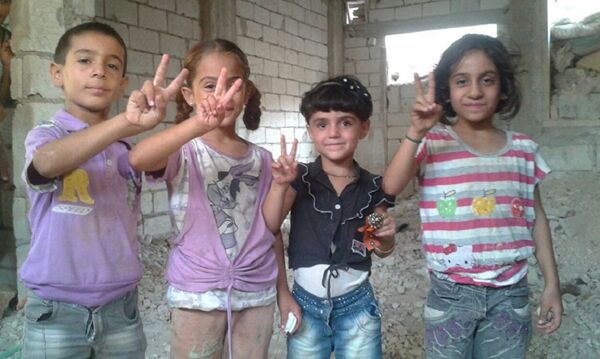
Losing hope
Government forces repeatedly attempted to break the blockade of the besieged cities. In November, the government army and militia managed to get closer to the Shiite settlements by 30 kilometers from Aleppo. However, the army has been unable to pass further than the Damascus – Aleppo route.
“About 1,500 bombs fall on our town every day. There are days when terrorists hit us with 3,000 mines and missiles. Who should we rely on, who will help us?” a Syrian from Fu’ah said.
Ordinary Syrians today have only one choice: to die slowly and painfully or to see the day when the blockade will be broken and help will come. Hope for the second option is fading with each passing day, the RIA correspondent concluded.

